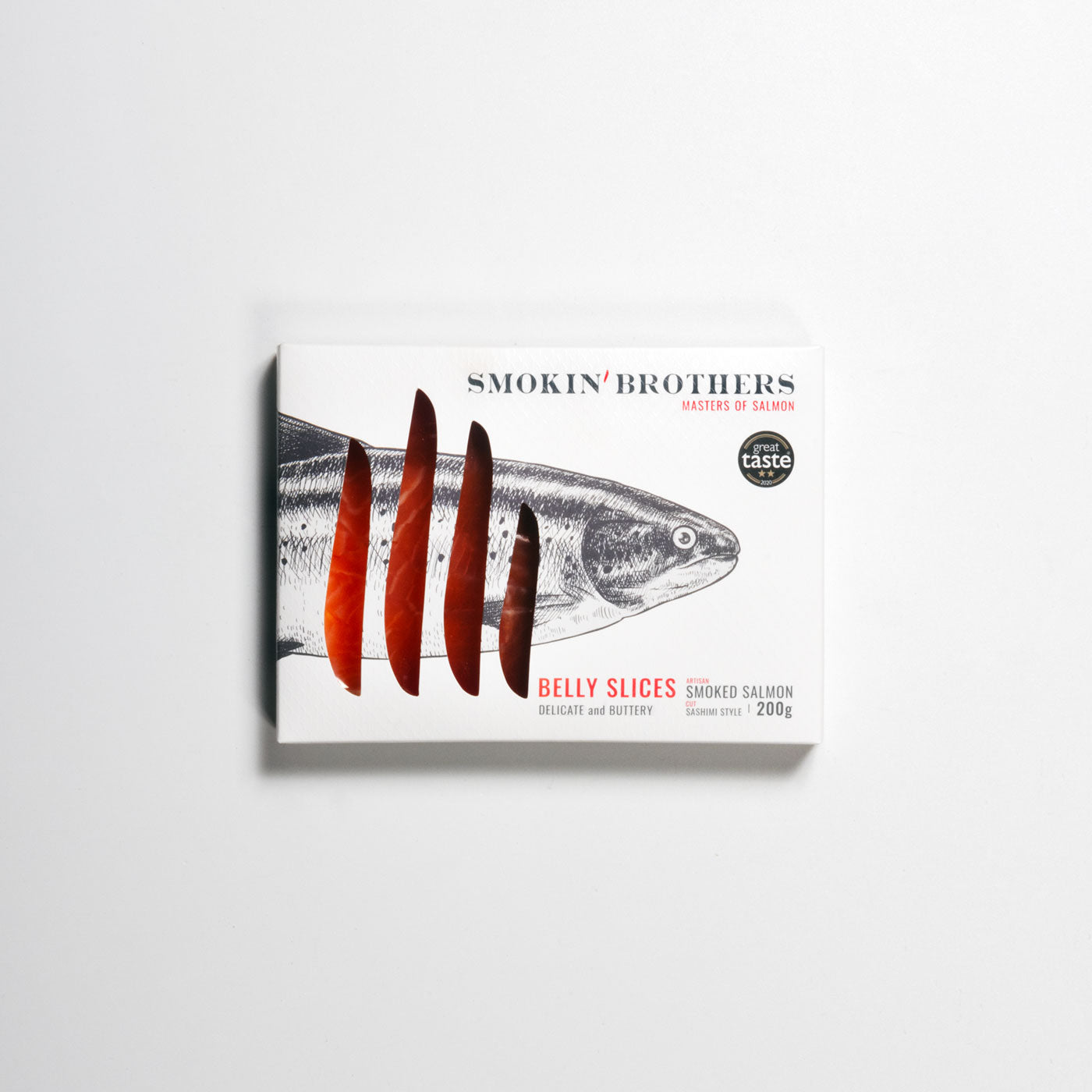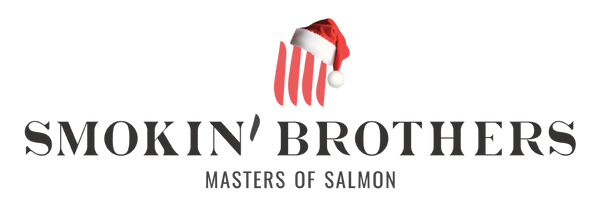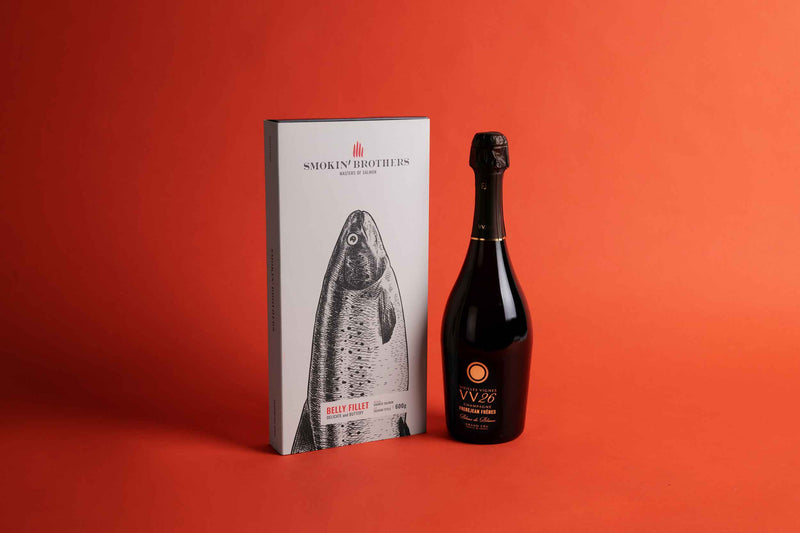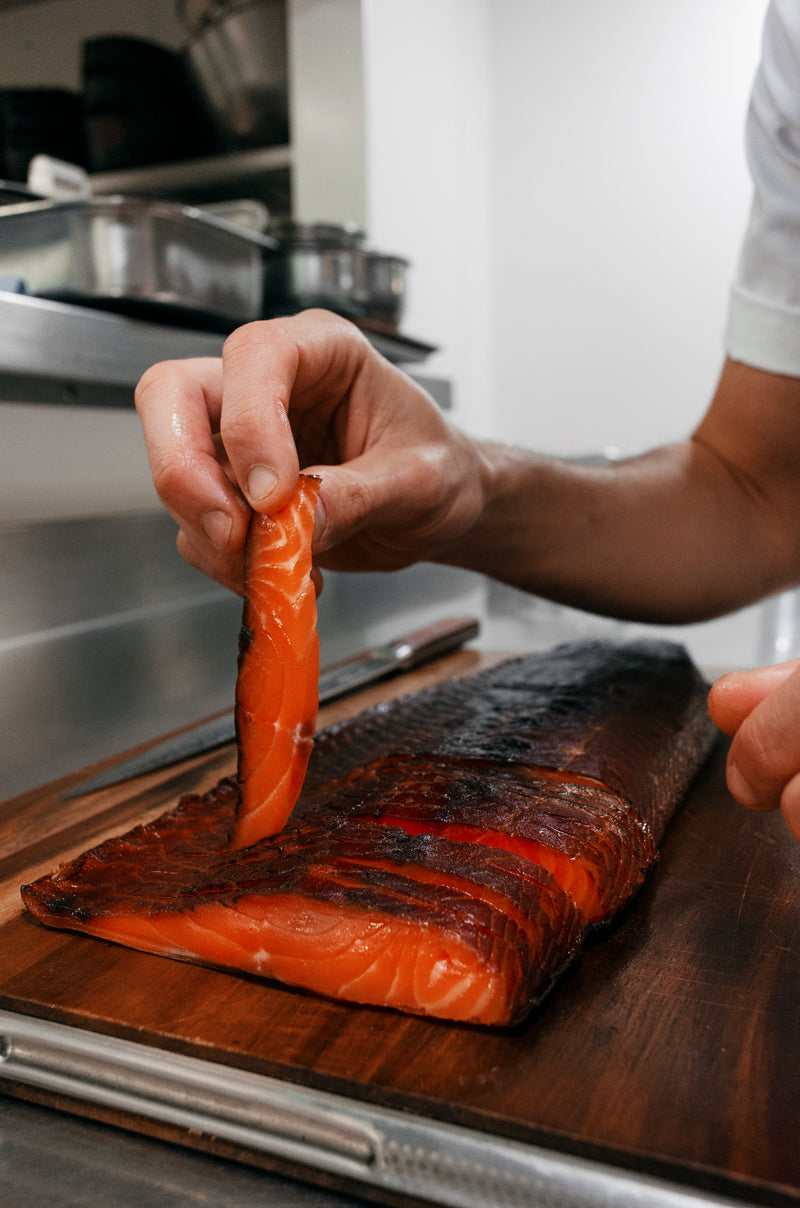Farmed salmon falls into one of two camps: organic, and non-organic.
‘Organic’ is an evocative word that immediately positions a product as superior in the mind of the average consumer, with connotations of excellent quality, taste, and even sustainability synonymous with the seven letter word.
While it is true that organic salmon possesses inherent advantages, it is imperative not to underestimate the merits of its non-organic counterpart. The most important factor when considering the value of any salmon is the origin of the fish - namely, understanding the details of the farm behind the product.
Whether the product bears the shiny label or not, there is a bigger and deeper picture that must be considered when discussing the merits of organic versus non-organic salmon.
What does organic salmon mean?
There are a myriad of factors that contribute to a salmon being awarded the organic badge of honour. Here are five considerations:
- Feed: organic salmon are fed with certified organic feed. This feed is composed of organic plant and animal sources, and is produced without synthetic pesticides, herbicides, or genetically modified organisms (GMOs). The goal is to provide a diet for the salmon that is as natural as possible, with the highest quality - and purest - ingredients.
- The (limited) use of chemicals: organic salmon farming restricts the use of synthetic chemicals, antibiotics, and pesticides. If antibiotics must be used, they are typically employed in a more limited manner compared to conventional farming, and their use must comply with organic standards.
- Farming practices: organic salmon farming adheres to specific environmentally friendly standards, including the density of fish in pens, the water quality, and overall impact on the environment. These practices are employed with the intention of minimising the ecological footprint of the salmon farm, and to promote sustainability at every touchpoint.
- A salmon’s natural colour is best: the colour of a salmon’s flesh is achieved through what the salmon eats. In the wild, salmon flesh is pink due to their Atlantic diet of crustaceans and zooplankton. In organic farmed salmon, the colour of the flesh is achieved through the natural pigments present in the fish’s all-natural feed, whereas in non-organic salmon farms, synthetic pigments may be used to enhance the pink colour.
- Certification: in order for a salmon farm to be awarded ‘organic’ status, they must undergo certification by a recognised organic certification body, such as the Soil Association’s Organic Standards for Great Britain Aquaculture.
This certification ensures that the farm complies with specific farming standards, covering aspects such as those detailed above.
Myth-busting:
There is a lot of misinformation within the discussion of organic versus non-organic salmon; here are five common myths - and the truth behind the myths!
- Myth 1: Organic salmon is always wild-caught: not true! Organic salmon can be both wild-caught or farm-raised. When classifying a salmon as organic, the qualifying variables pertain more to the farming practices, feed, and environment as opposed to the source of the fish.
- Myth 2: Non-organic salmon is full of harmful chemicals: not (always) true. While some non-organic salmon farms may use chemicals in their farms, not all of them do. Non-organic farms can still adopt responsible practices and adhere to strict regulations regarding their use of chemicals, so it is not accurate to assume that all of these salmon farms - and subsequently their salmon - are full of harmful chemicals.
- Myth 3: All non-organic salmon is genetically modified: genetically modified salmon is available on the market, but not all non-organic farms operate to this standard. In short, non-organic does not automatically equal genetically modified. Make sure you check product labels and certifications to be sure you know the origin, and type of salmon [GM or non-GM], being purchased.
- Myth 4: Organic salmon is always free from any use of antibiotics: organic salmon farms can - and sometimes still do - use antibiotics on their salmon, just in a more restricted manner when compared to non-organic farms. The use of antibiotics is not entirely eliminated in organic salmon farming, so research into in the specific salmon farm - the source of your salmon product - is the only way to ascertain whether any farm uses antibiotics or not.
- Myth 5: Organic salmon is always a more sustainable choice: while organic salmon often follows more environmentally friendly practices, the overall sustainability quality and value is dependant on a broad set of factors, including but not limited to the specific farming methods employed. Non-organic farms can choose to implement more sustainable practices, so be wary of assuming that organic automatically means a more sustainable choice...
Conclusion:
As all the above points make clear, it is important for salmon consumers to make a considered and conscious choice when selecting who to purchase their salmon products from.
Organic status does not ensure that all best practices are being observed, and likewise, some non-organic salmon farms can be regarded as on a par with their organic counterpart - providing there is assurance as to the ethical guidelines and farming methodologies employed.
So make sure you do your homework. Knowledge is power, after all!
At Smokin’ Brothers we only source our salmon from the most sustainable and ethical farms available, modelling our brand ethos of quality and sustainability at every stage of the supply chain. By consuming our smoked salmon, you can be assured of transparency and best practice at all times.
Explore our sustainably-sourced range of smoked salmon.




